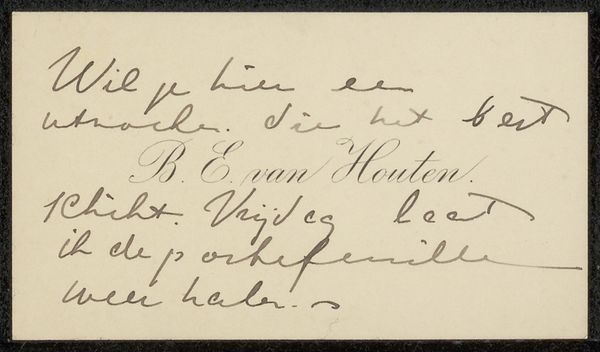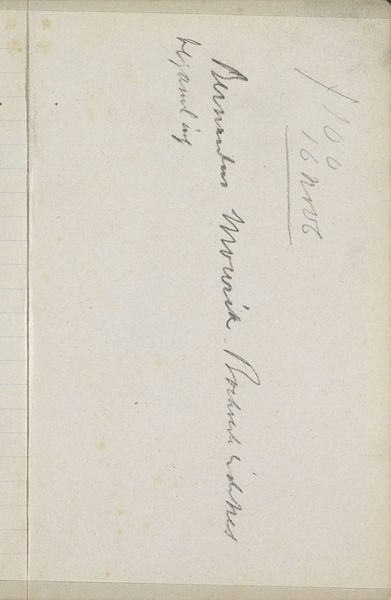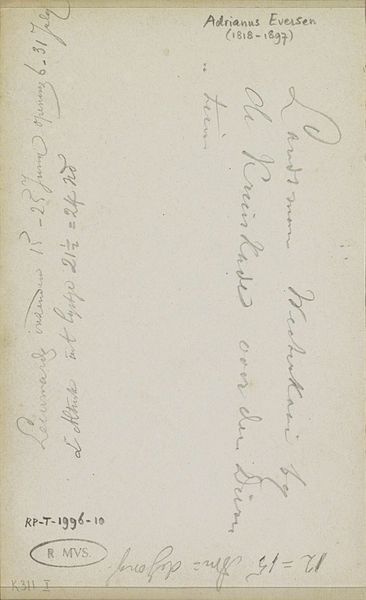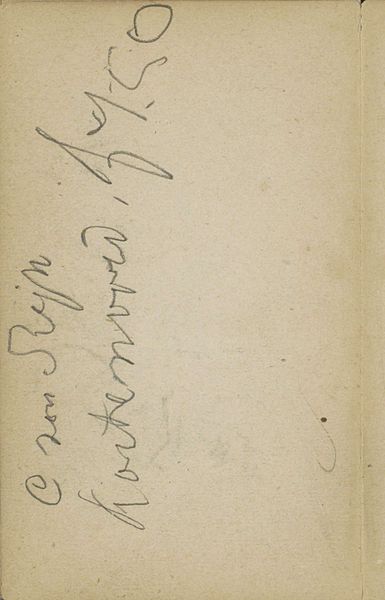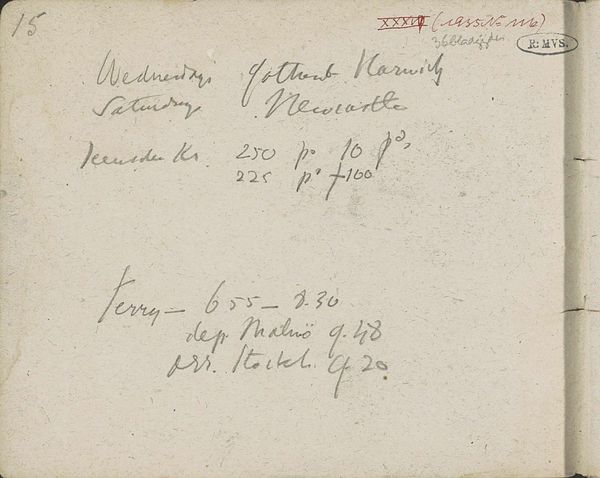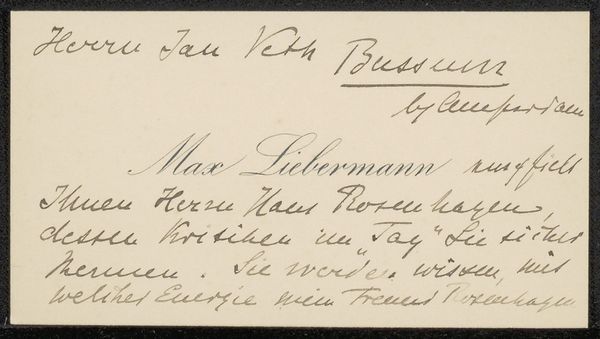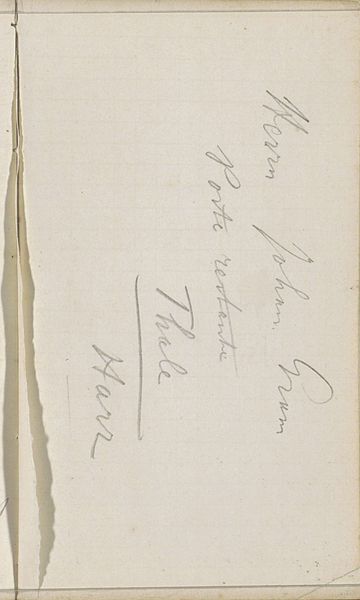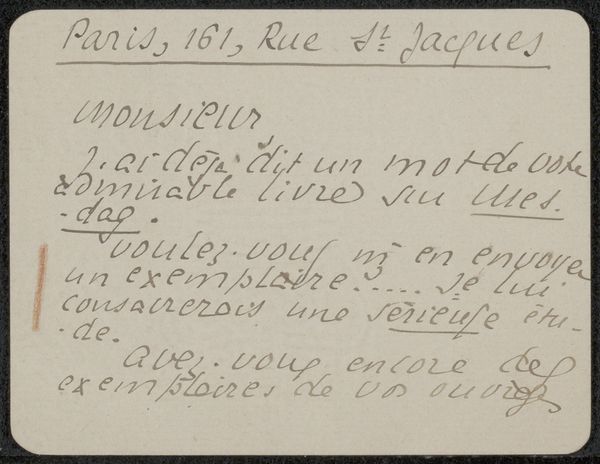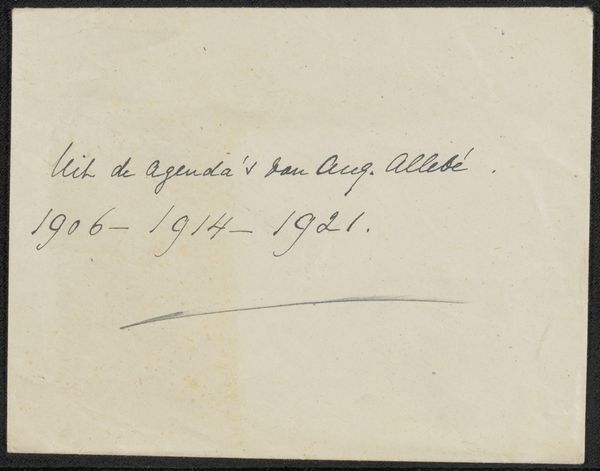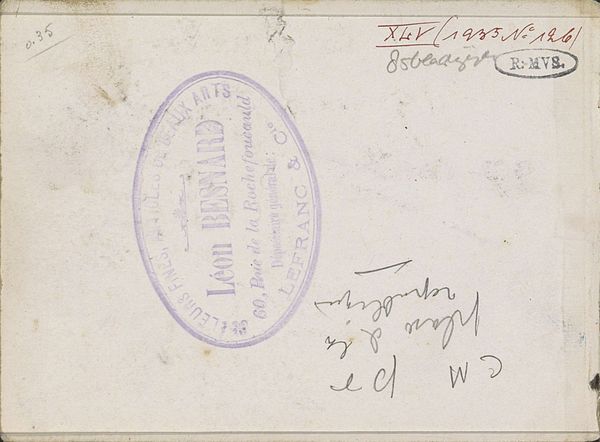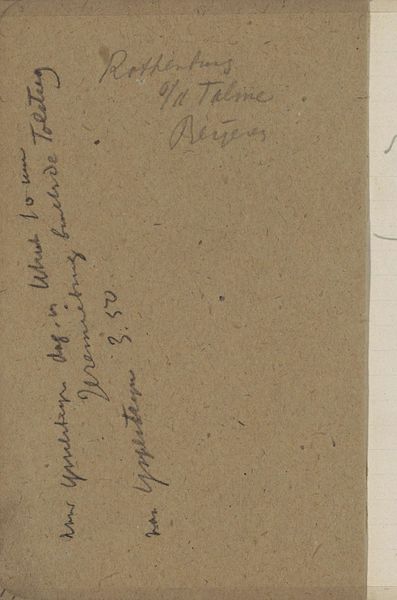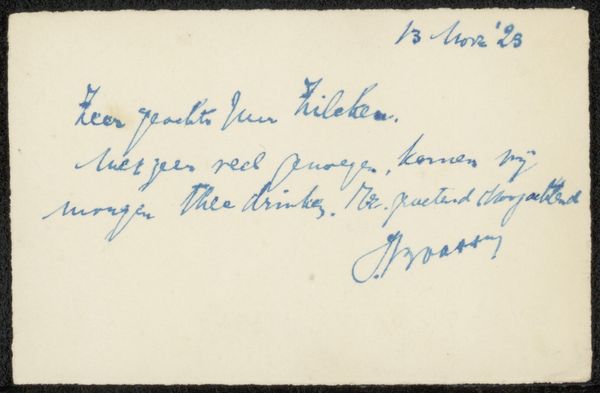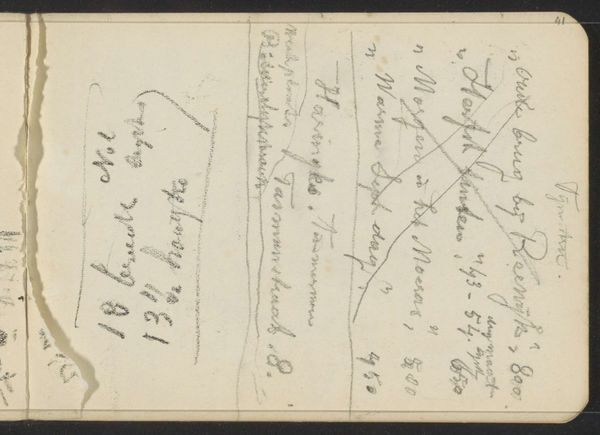
Copyright: Rijks Museum: Open Domain
Curator: Isaac Israels’ “Annotaties,” dating from 1875 to 1934, invites us into a very personal space. It’s rendered in pen and pencil, currently held in the collection of the Rijksmuseum. Editor: My initial feeling is one of delicate intimacy. The handwriting, almost fading, gives me the sensation of looking at something very private, like a forgotten note tucked away in an old book. It whispers more than shouts. Curator: Absolutely. Considering Israels' involvement in the art scene, we might see this piece as a quiet dialogue. In its creation, the handwritten notations could signal an interaction with networks and individual personalities during the evolving cultural milieu. Perhaps this note relates to the art world and the position of women within it during the late 19th and early 20th centuries. Editor: It's funny how a simple address – "52 Rue de Coqueerelle" – can become a portal. It's just, I don't know, an anchor to someone’s reality? What stories those walls could tell! It really highlights how every individual experience becomes valuable with the passage of time. This handwriting transforms from being merely functional to art with inherent nostalgia. Curator: That is true, this hand written piece contains layers of signification which intersect issues of identity and representation, speaking, in turn, to the gendered expectations that likely defined her experience in ways not often explicitly documented in more formal archives. We can analyse the subtle gestures and informal observations to unveil the complexities of human existence that go beyond the boundaries of the picture. Editor: Yeah. There’s something beautiful in seeing the unpolished marks, these subtle lines and curves of hand-drawn type. It also serves as a stark reminder about ephemerality: a reminder of both beauty and how, someday, everything can be just memories. Curator: Looking at ‘Annotaties’ then also causes me to think critically about memory and archives. In that regard, it serves to remind us of what’s valued, preserved, and how it reflects specific societal biases, like gender in this situation. Editor: Exactly. So simple and fleeting, yet now permanently here with us, if only to make us more aware of everything around. What an ode to the importance of perspective.
Comments
No comments
Be the first to comment and join the conversation on the ultimate creative platform.
